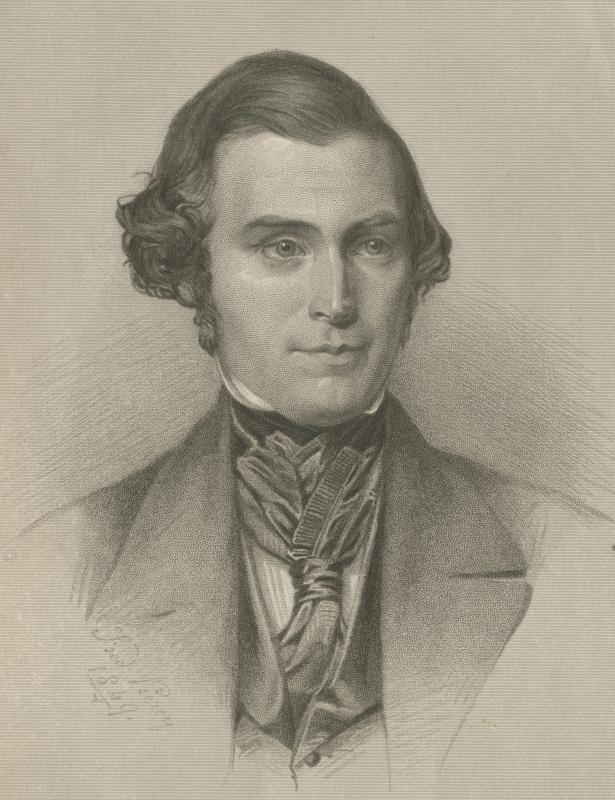3.2 Orson Pratt, Orson Spencer, and Brigham Young debate "An Act in Relation to Service," January 27, 1852
Orson Pratt, Orson Spencer, and Brigham Young debate “An Act in Relation to Service,” January 27, 1852
Document Introduction
Watt recorded three speeches on January 27, 1852, all three of which addressed “An Act in Relation to Service.”[1] Pratt spoke first and advocated for the bill to be dismissed in its entirety. Short of that, he set his sights on section three of the bill which originally included a clause that would have made a person’s status as a “servant” pass on to future generations. As the bill put it, a master was entitled to the service of a servant and “his, her, or their children, until the curse of servitude is taken from the descendants of Canaan.” It was a perpetual clause that made the “servant” bill closer to slavery than to indentured servitude. Pratt made that point in his speech. The fact that lawmakers dropped the clause before passing the bill is likely credit to Pratt’s persuasive powers. At the very least he gave lawmakers pause. The bill that they passed did not make servitude inheritable to the next generation and turned it from a perpetual form of servitude into a possible form of gradual emancipation. A “servant’s” status did not pass to the next generation.
Orson Spencer spoke next. Although Pratt did not mention priesthood in his speech, Spencer did. He did so in a way that made it clear that he did not hear about the racial priesthood restriction for the first time when Young mentioned it four days earlier. Spencer spoke of the racial restriction as a known fact. His concern was over how the restriction might impact Mormon missionary efforts in Africa. Pratt on the other hand argued against the foundation of the restriction when he asserted that divine curses were not mutigenerational. Spencer spoke in favor of the servant code then under discussion while at the same time he labeled the chattel slavery practiced in the South “evil.” It was an indication that Spencer did not consider the Utah servant code equivalent to a law designed to legalize slavery. He understood servitude to be legally distinct from slavery and he articulated that distinction in his speech. Thus Pratt and Spencer’s speeches represent significant new contextual information for the development of the servant code over the course of the legislative session and for Mormonism’s racial priesthood and temple restrictions. They make it clear that the ideas surrounding both the new law and the racial restrictions were not universally accepted, uncontested, and in place from the founding of the faith. Those ideas developed over time and at least some of them took shape in a debate before the territorial legislature.
Young did not respond directly to Pratt or Spencer but he did briefly address one aspect of “An Act in Relation to Service” that he wanted changed. He argued that if a white master violated the terms of the proposed law, rather than letting the court facilitate a transfer of the servant to a different master as the bill originally required, Young insisted that the servant should instead be set free, “same as white people.” It was an important moment in the development of the bill and demonstrated the ways in which Young was more moderate regarding chattel slavery than he is sometimes portrayed. In total, the exchange between Pratt, Spencer, and Young represents the most important new information on the emergence of Utah’s “servant” code and on the development of Mormonism’s racial priesthood restriction in more than forty years.
[1] Orson Pratt, Orson Spencer, and Brigham Young, before the Territorial Legislature on slavery, January 27, 1852, CR 100 912, Church History Department Pitman Shorthand transcriptions, 2013-2021, Addresses and sermons, 1851-1874, Miscellaneous transcriptions, 1869, 1872, 1889, 1848, 1851-1854, 1859-1863, Utah Territorial Legislature, 1852 January-February, CHL.


